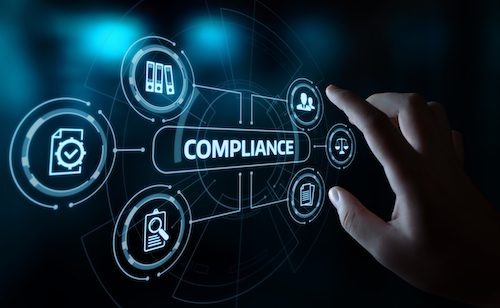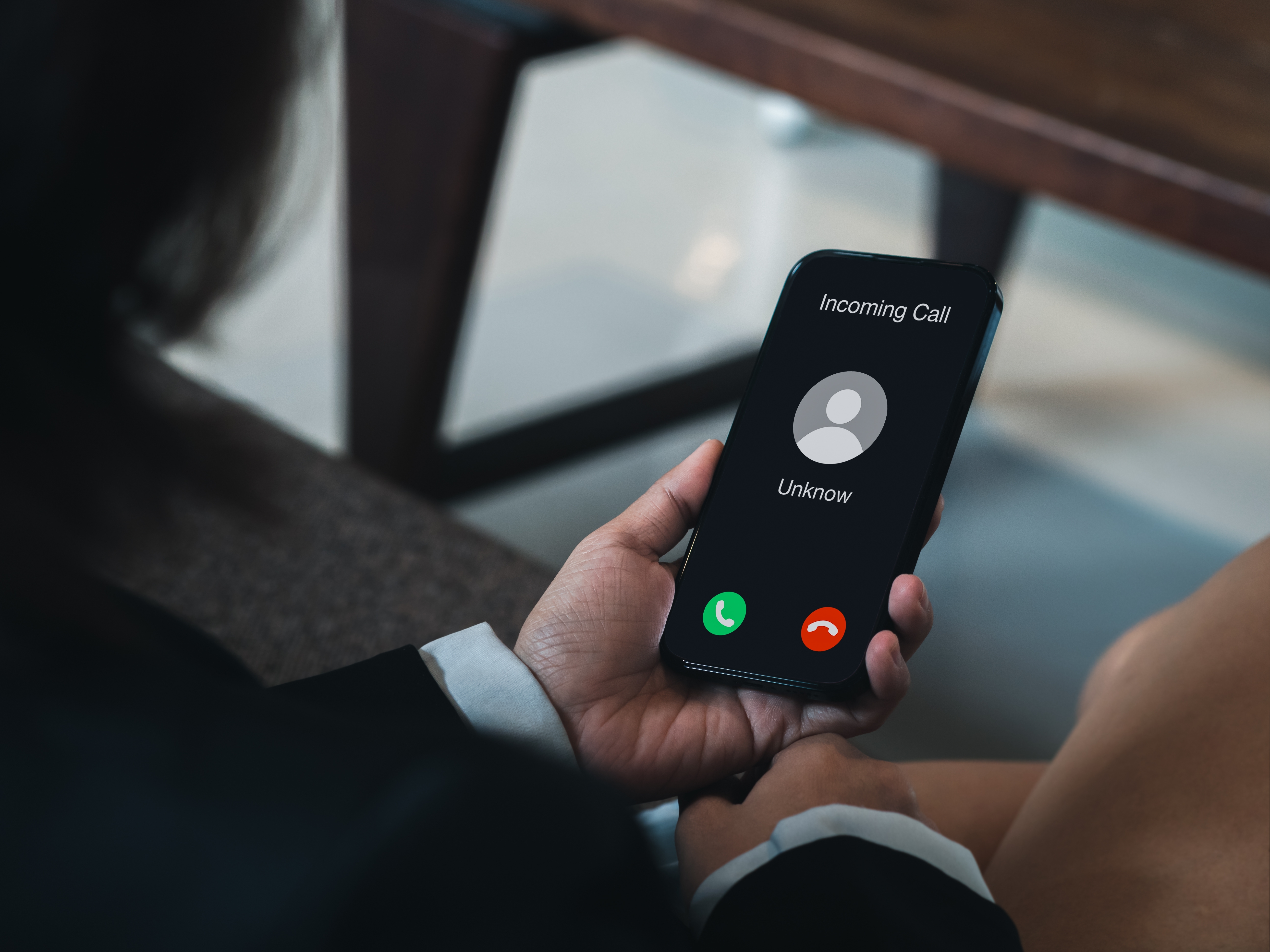Staying Compliant with DNC Regulations: A Guide for Businesses

Staying Compliant with DNC Regulations: A Guide for Businesses Businesses today have a vast array of options for reaching potential customers. But telemarketing, remains a powerful tool for driving sales and brand awareness. However, with this power comes responsibility – the responsibility to adhere to Do Not Call (DNC) regulations. The DNC Registry, established by the Federal Trade Commission (FTC), allows consumers to register their phone numbers to opt-out of receiving unsolicited telemarketing calls. Violating these regulations can lead to hefty fines and damage your business reputation. This guide from Interactive Marketing Solutions (IMS) will equip you with the knowledge you need to navigate the complexities of DNC compliance and ensure your telemarketing efforts remain legal and ethical. Understanding the Key DNC Regulations The Telephone Consumer Protection Act (TCPA) forms the foundation of DNC regulations. Here are some key aspects to understand: DNC Registry: The National DNC Registry allows consumers to register their phone numbers to opt-out of receiving telemarketing calls. Businesses are legally obligated to scrub their call lists against the registry on a regular basis, typically every 31 days, to remove registered numbers. Prior Express Consent: For certain types of calls, such as those using prerecorded messages or autodialers, you’ll need prior express written consent from the consumer before contacting them. Do Not Call Opt-Out Mechanisms: Your telemarketing campaigns must provide a clear and easy-to-use method for consumers to opt-out of receiving further calls. This typically involves including an opt-out message at the beginning or end of your call, as well as providing a phone number or website where they can register their request. Call Time Restrictions: The TCPA restricts the times you can contact consumers. Generally, telemarketing calls cannot be made before 8:00 AM or after 9:00 PM local time. Best Practices for DNC Compliance Beyond a basic understanding of the regulations, here are some best practices to ensure your telemarketing campaigns are DNC compliant: Invest in DNC Scrubbing Services: Manually scrubbing your call lists against the DNC Registry is time-consuming and error-prone. Consider partnering with a reputable DNC scrubbing service that can automate this process and ensure your lists are up-to-date. Maintain Accurate Records: Keep detailed records of all consumer opt-out requests, including the date, time, and method used (phone call, email, etc.). These records can be crucial if you’re ever audited by the FTC. Train Your Staff: Educate your telemarketing personnel on DNC regulations and best practices. This includes proper opt-out procedures, call time restrictions, and the importance of adhering to consumer requests. Monitor Your Campaigns: Regularly monitor your telemarketing campaigns for any potential compliance issues. Analyze call logs and identify areas where improvements can be made. Consequences of Non-Compliance Violating DNC regulations can have serious consequences for your business. The FTC can impose hefty fines per violation, which can quickly add up. Additionally, negative publicity surrounding non-compliance can damage your brand reputation and deter potential customers. Staying Informed The regulatory landscape is constantly evolving. Be sure to stay informed about any updates to DNC regulations by subscribing to FTC updates or consulting with a telemarketing compliance expert. Benefits of Staying Compliant Adhering to DNC regulations is not just about avoiding penalties; it also fosters trust and credibility with your customers. Compliance shows that your business respects consumer preferences and privacy, which can enhance your brand reputation and customer loyalty. Moreover, by following the rules, you can avoid the financial and legal repercussions of non-compliance, which can be substantial. Contact IMS Today Don’t let DNC compliance become a burden. Contact Interactive Marketing Solutions today and let us help you navigate the regulations while ensuring your telemarketing campaigns reach the right audience, legally and effectively. Visit our website or call us to discuss your specific needs. References: https://www.donotcall.gov/ https://www.ftc.gov/ https://www.dnc.com/what-is-tcpa#:~:text=The%20Telephone%20Consumer%20Protection%20Act,federal%20telemarketing%20regulations%20ever%20since. https://www.dnc.com/news/what-tcpa-express-consent#expressconsent http://www.call-center-tech.com/opt-out-do-not-call.htm https://www.dnc.com/what-is-tcpa Craig Rigano August 26, 2025
Do Not Call List Compliance in the Digital Age: Challenges and Solutions

Do Not Call List Compliance in the Digital Age: Challenges and Solutions In today’s digital age, where communication channels are constantly evolving, maintaining compliance with the Do Not Call List has become increasingly complex for businesses. The Do Not Call List, established by the Federal Trade Commission (FTC), aims to protect consumers from unwanted telemarketing calls. However, with the rise of digital marketing tactics such as email, SMS, and social media, ensuring compliance presents new challenges. In this blog, we’ll explore the challenges businesses face in adhering to Do Not Call List regulations in the digital era and discuss effective solutions to navigate these complexities. Understanding Do Not Call List Compliance Before delving into the challenges and solutions, it’s essential to grasp Do Not Call List compliance fundamentals. The Do Not Call List is a registry maintained by the FTC, allowing consumers to opt out of receiving telemarketing calls. Businesses are legally obligated to scrub their call lists against the registry and refrain from contacting registered numbers. Failure to comply can result in significant fines and damage to a company’s reputation. Challenges in the Digital Age One of the primary challenges businesses encounter in the digital age is the integration of various communication channels. While the Do Not Call List primarily targets telemarketing calls, similar regulations extend to email, SMS, and other forms of electronic communication. Ensuring compliance across these channels requires sophisticated software and meticulous record-keeping. Moreover, identifying and updating contact information across multiple platforms poses a significant challenge. Consumers frequently change phone numbers, emails, and preferences, making it difficult for businesses to maintain accurate records and respect opt-out requests effectively. Additionally, the global nature of digital marketing presents jurisdictional challenges. While the Do Not Call List applies to the United States, businesses operating internationally must navigate a patchwork of regulations and compliance standards across different regions. Solutions for Do Not Call List Compliance Despite the challenges, several solutions can help businesses maintain compliance with the Do Not Call List in the digital age: Comprehensive Compliance Software: Invest in robust compliance software that can integrate with various communication channels and automate the scrubbing process against the Do Not Call List. These tools streamline compliance efforts and minimize the risk of human error. Regular Data Audits: Conduct regular audits of your customer data to ensure accuracy and compliance. Update contact information and opt-out preferences promptly to reflect consumers’ preferences accurately. Clear Opt-Out Mechanisms: Implement clear and accessible opt-out mechanisms across all communication channels. Provide consumers with easily accessible options to unsubscribe from marketing communications, ensuring compliance with Do Not Call List regulations. Employee Training: Educate employees on Do Not Call List regulations and the importance of compliance. Ensure that all staff members involved in marketing and customer outreach understand their responsibilities and the consequences of non-compliance. Cross-Channel Coordination: Establish protocols for cross-channel coordination to ensure consistent compliance across email, SMS, social media, and other digital platforms. Centralize opt-out requests and update preferences across all channels promptly. Monitor FCC Updates:The Federal Communications Commission (FCC) regularly updates its guidance on TCPA and Do Not Call List regulations. Subscribe to FCC updates to stay informed about new rulings and interpretations. Seek Expert Guidance:Consider consulting with legal professionals or TCPA compliance service providers to ensure your practices align with the latest regulations and best practices. 8. Industry Resources: Stay updated on industry news and publications that address current trends and challenges in Do Not Call List compliance. Conclusion In the digital age, maintaining compliance with the Do Not Call List presents unique challenges for businesses. However, by leveraging comprehensive compliance software, conducting regular data audits, implementing clear opt-out mechanisms, providing employee training, coordinating across channels, and staying informed about regulatory updates, businesses can navigate these challenges effectively. By prioritizing compliance and respecting consumers’ preferences, organizations can build trust, mitigate risk, and uphold their reputation in an increasingly regulated digital landscape. At Interactive Marketing Solutions, we understand the importance of compliance in digital marketing. Our advanced solutions and expertise help businesses navigate the complexities of Do Not Call List compliance while maximizing the effectiveness of their marketing efforts. Contact us today to learn more about our compliance services and how we can support your business’s success in the digital age. Resources: Federal Communications Commission (FCC) TCPA webpage: https://www.fcc.gov/tags/telephone-consumer-protection-act-tcpa National Do Not Call Registry: https://www.donotcall.gov/ Interactive Marketing Solutions (IMS): https://www.ims-dm.com/ (Provides TCPA compliance solutions and resources) Craig Rigano August 26, 2025
Can robocalls be stopped?

Can robocalls be stopped? Robocalls, the automated phone calls that deliver prerecorded messages, have become a persistent nuisance for many individuals and businesses. They often disrupt daily activities, and many contain scams or fraudulent messages. With billions of robocalls made each year, the question on everyone’s mind is: can robocalls be stopped? The answer, unfortunately, isn’t a simple yes or no. While complete eradication might be a distant dream, there are several strategies we can employ to significantly reduce the number of robocalls plaguing our phones. Let’s delve into the current landscape and explore effective methods to combat this widespread problem. Why Robocalls Are Here to Stay (For Now) Several factors contribute to the persistence of robocalls. The technology behind them is relatively inexpensive and readily available. Additionally, robocallers often exploit loopholes or use sophisticated techniques to bypass traditional call blocking methods. Spoofing: Robocallers can manipulate caller ID to appear like a legitimate number, making them seem trustworthy. International Operations: Many robocallers operate overseas, making enforcement by local authorities difficult. Constantly Evolving Tactics: Robocallers adapt their approach, using pre-recorded silence to bypass initial call filters or employing live operators who attempt to sound like real people. Taking Back Control: Strategies for Reducing Robocalls Despite the challenges, there are steps you can take to significantly reduce the number of robocalls you receive: Register Your Phone Number on the National Do Not Call Registry: This free service prohibits telemarketers from contacting you. While not foolproof, it can help filter out some unwanted calls. Enable Call Blocking Features: Most phone carriers offer built-in call blocking features or allow you to download third-party call blocking apps. These tools can identify and block suspected robocalls. Don’t Engage with Robocallers: Silence is golden. Avoid answering robocalls, as any interaction, even hanging up, can signal to the caller that your number is active. Consider Call Authentication Services: These services verify the legitimacy of incoming calls and can block those deemed suspicious. The Role of Technology and Legislation The fight against robocalls requires a multi-pronged approach. Technology companies are developing more sophisticated call screening and blocking tools powered by artificial intelligence (AI). Additionally, legislation like the Telephone Robocall Abuse Criminal Enforcement and Deterrence Act (TRACED Act) aims to empower the Federal Communications Commission (FCC) to crack down on robocallers. A Collaborative Effort: The Future of Robocall Prevention While eliminating robocalls entirely might not be feasible in the near future, ongoing collaboration between phone carriers, technology companies, and regulatory bodies holds promise. As consumers, staying informed about the latest tactics and utilizing available tools empowers us to reduce the number of robocalls we experience. By working together, we can create a communication environment free from unwanted interruptions. Remember, staying vigilant and reporting robocalls to the FCC are crucial steps in this ongoing battle. Leverage Professional Services for Enhanced Protection For businesses and individuals looking to further protect themselves from robocalls and enhance their marketing strategies, Interactive Marketing Solutions (IMS) offers comprehensive services. IMS can assist with compliance management, ensuring that your telemarketing practices adhere to all regulations, including those regarding robocalls. Our solutions also include data hygiene, which helps to maintain the accuracy of contact information and reduce the risk of inadvertently contacting individuals who should not be called. By partnering with IMS, you can leverage our expertise to minimize the impact of robocalls on your business operations. Our advanced tools and services provide an additional layer of protection, ensuring that your communications remain effective and compliant. Learn more about Interactive Marketing Solutions In conclusion, while the battle against robocalls is ongoing, utilizing available tools and resources can significantly reduce their frequency and impact. By staying informed, adopting technological solutions, and leveraging professional services, you can protect yourself from the annoyance and potential harm of robocalls. References: https://www.experian.com/blogs/ask-experian/what-is-a-robocall/ https://www.donotcall.gov/ https://www.fcc.gov/call-blocking https://www.fcc.gov/spoofing https://www.fcc.gov/call-authentication https://www.fcc.gov/TRACEDAct Craig Rigano August 26, 2025
